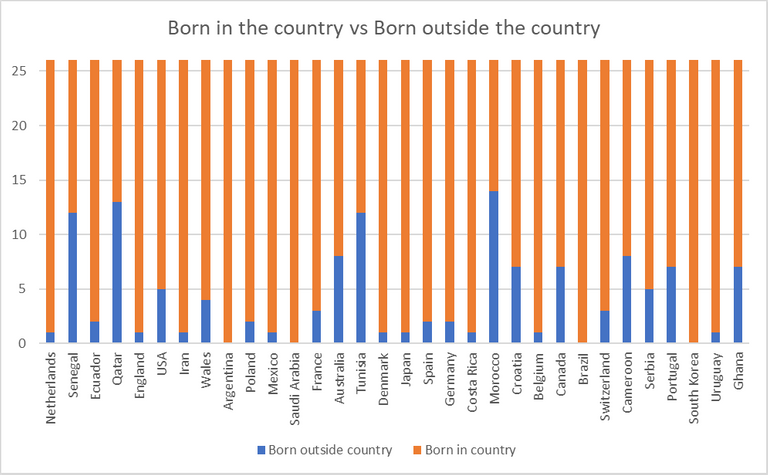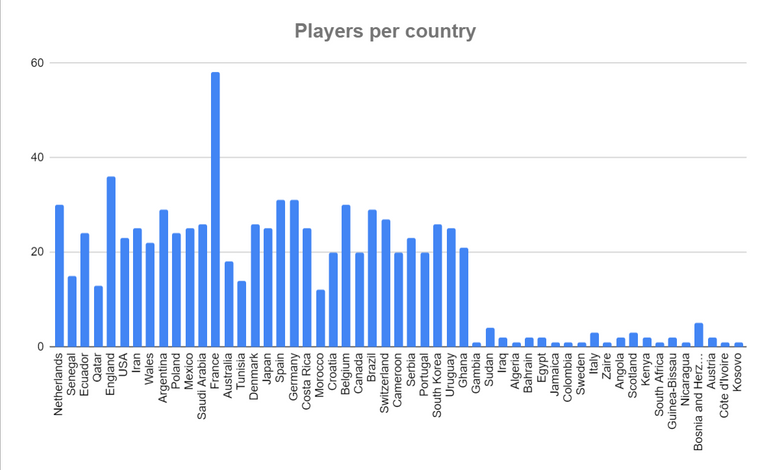How many nationalities are present at the 2022 World Cup?
Many may find this question strange or promptly answer that there are 32 nationalities, since there are only 32 teams qualified for the World Cup.
This would be true if all the players playing for the national teams were born in that country, which is not true, although sometimes we think that a certain player is of that nationality because we always hear about him from a very early age in the youth system.
Let's then analyze how many players born in the country they are representing in the world cup:

Out of a total of 832 players, 700 players represent the country where they were born. This means that there are 132 players who represent the country where they were not born.
As we can see in the graph, that only 4 countries use 26 players who were born in the country: Brazil, Argentina, Saudi Arabia and South Korea.
At the other end of the graph we have countries like Morocco (14 players were born in the country), Qatar (13 players were born in the country), Tunisia and Senegal (12 players were born in the country).
So what countries were these 100 players born in? Are there countries represented by players representing other teams?

As we can see in the chart, there are a total of 53 countries instead of just the 32 countries that qualified for the World Cup.
Let's see which “extra” countries are the country of birth of a player, but they represent another country:
Gambia, Sudan, Iraq, Algeria, Bahrain, Egypt, Jamaica, Colombia, Sweden, Italy, Zaire, Angola, Scotland, Kenya, South Africa, Guinea-Bissau, Nicaragua, Bosnia and Herzegovina, Austria, Côte d'Ivoire and Kosovo
We have names of countries that have never participated in a World Cup.
France stands out as the country in which the most players were born and participate in the World Cup, with a total of 58 players.
On the other hand, of the qualifying teams, Morocco is the country where the fewest players were born, only 12.
Should players play for the country where they were born?
Would this boost other selections?
What's your opinion?

Globalization at its best 🤣
As what I can see, France is the nationality having the most diverse team. I think this have been planned since the 1900's for them to be competitive, which worked out pretty well.
Cool graphs really enjoyed them. I enjoy seeing different ethnic backgrounds representing countries. I don't think it should come down to where they were born. You could have players moving countries from quite young and it makes sense that they feel at home and feel a need to give back.
It gets a bit interesting when players play in a domestic league overseas and they end up getting naturalised for living in the country for X amount of years which allows them to qualify for citizenship
I can understand What are you saying and I agree with it but lets look for Ziyech.
He born in Netherlands and never played in one Marroco club. Why shall he represent Marroco national tem?
Wahbi Khazri born in France and never played for a Tunisia club.
In this situation shall they play for a national team having never played for a single club in the country?